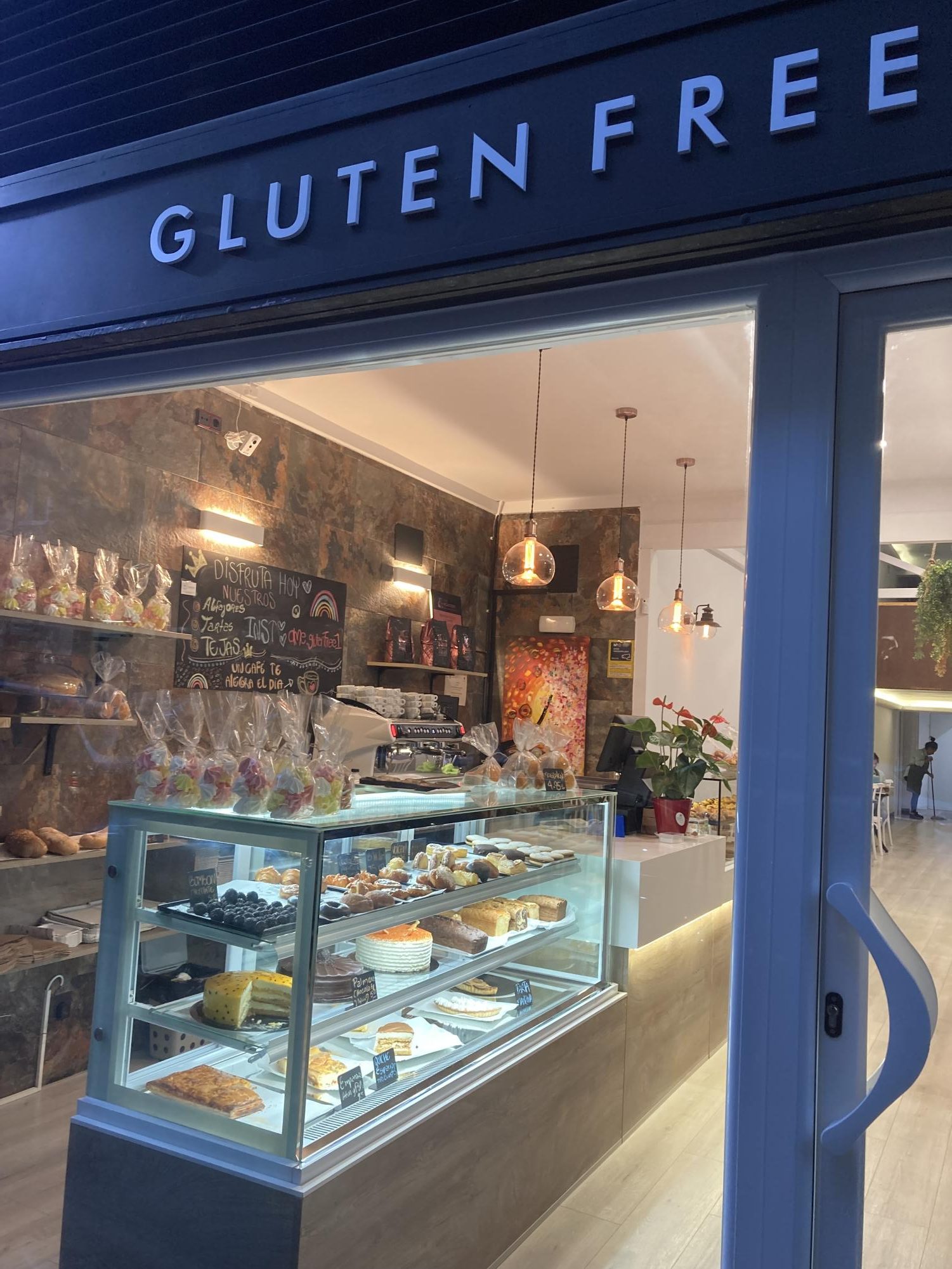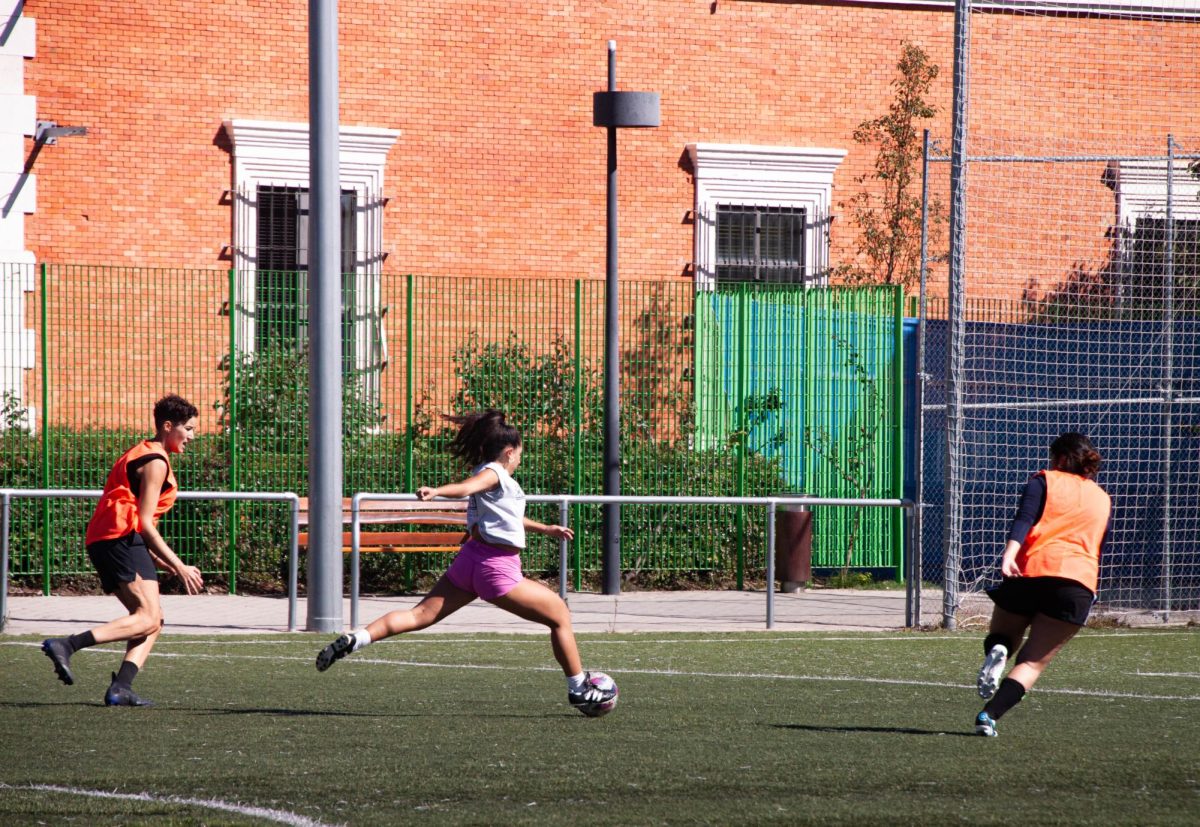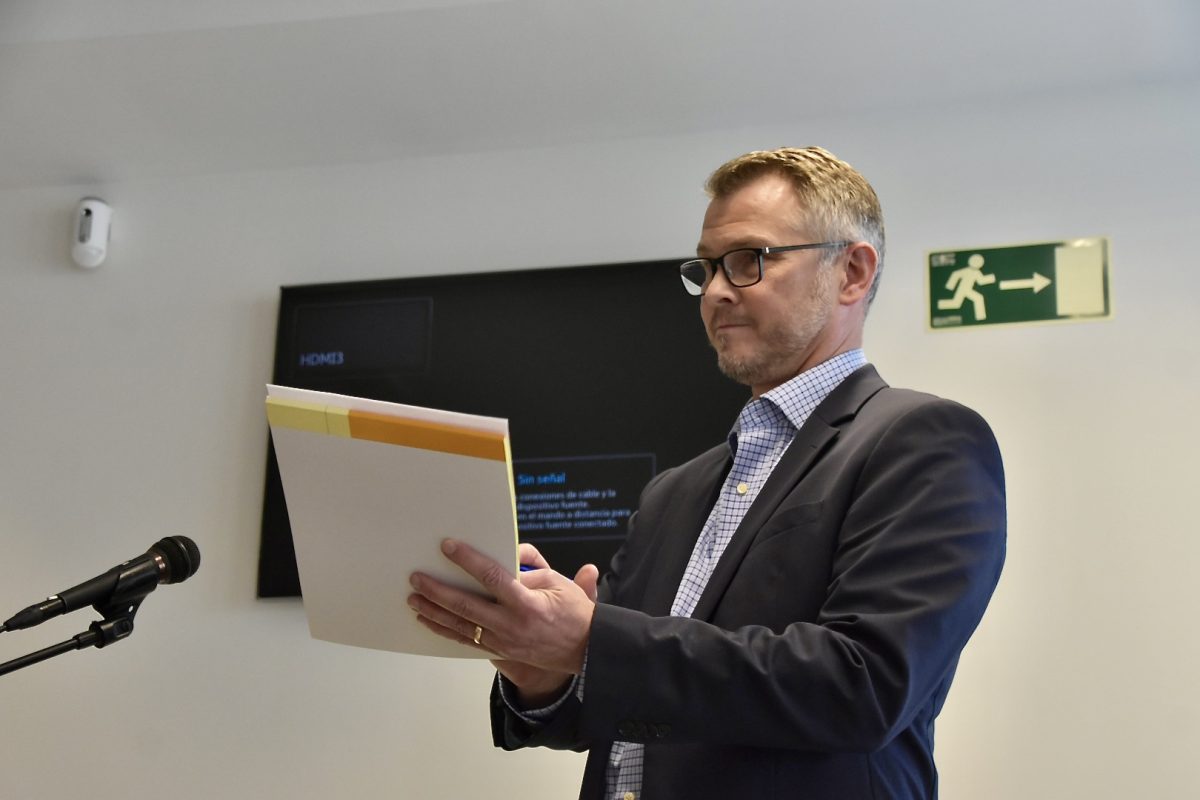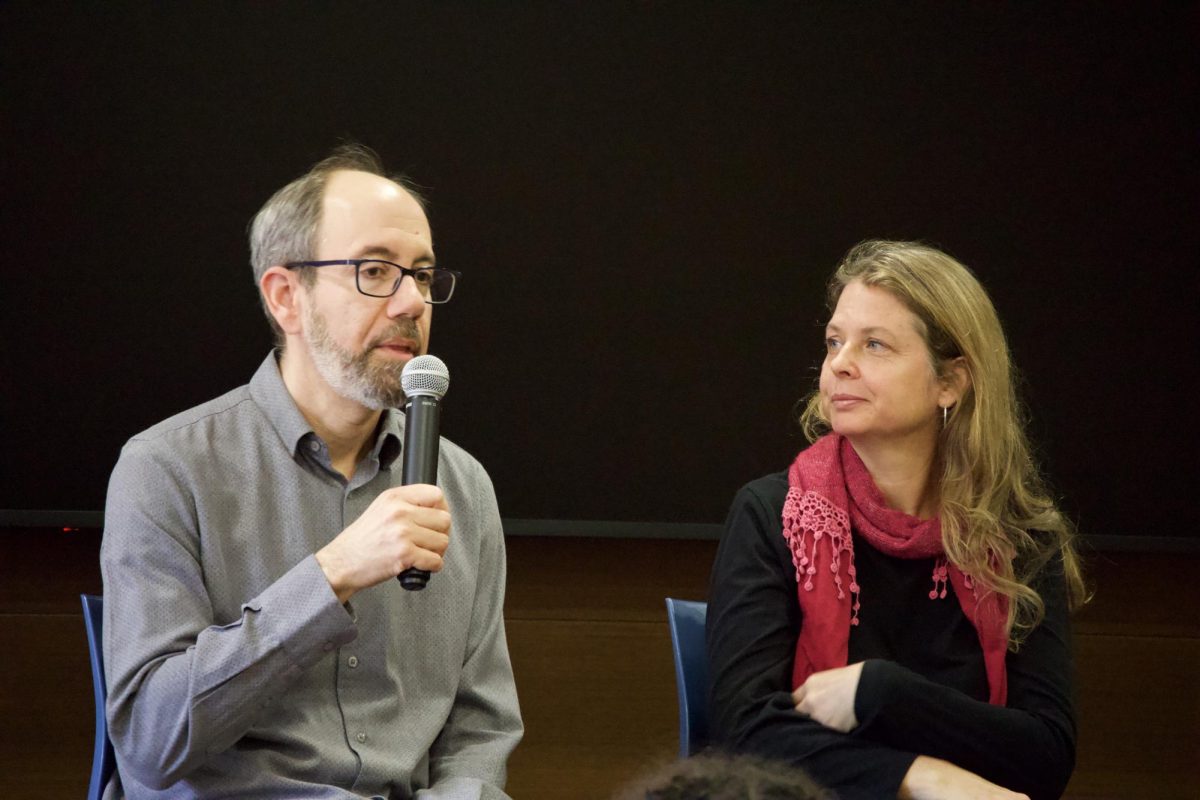The smell of fresh dough wafts through the air as patrons bustle about the quiet cafe. The tables are filled with people eating fluffy chocolate napolitanas and savory tuna empanadas while sipping their steaming coffee. Sweet sticky buns, fresh croissants, and billowy donuts covered in pink frosting line the bakery’s cases. Varying sizes of palmeritas, the bakery’s most popular item, are showcased in the glass display case.
A huge sign lies behind the seemingly gluten-filled bakery’s display cases alerting the customers that everything is “Sin Gluten,” gluten-free.
Sana Locura is not your typical bakery. Everything here is made from harina de almendra: almond flour. Yet customers stream through all day – even though ordinary bakeries line the nearby streets. The bakery opened five years ago after the owner noticed many people in the area were beginning to be diagnosed with celiac disease.
“A lot of people are wary of gluten-free goods and think it is just a health food trend that does not taste good,” said Elisa Angeles, a waitress at Sana Locura, after serving palmeritas – flaky-dough cookies shaped like elephant ears. “Here at Sana Locura, we have been able to give people the feeling of being able to eat the glutenous versions of regular pastries without the healthy food taste.”
More than 20 Gluten-Free Eateries in Madrid
Sana Locura, which translates roughly to Healthy Craziness, is not the only gluten-free establishment in Madrid. More than 20 all gluten-free restaurants and bakeries serve pizzas, croissants, and pasta – all without gluten. Madrid is one of the top European cities to visit if you are gluten-free, according to a travel blog dedicated to gluten-free living called Wheatless Wanderlust. However, gluten-free options across the world have only been a recent invention in the past couple of years.
These restaurants and bakeries have opened recently throughout Europe and the U.S. because of the increased diagnosis of celiac disease and gluten intolerance, according to Blanca Esteban, director of the Asociación de Celiacos y Sensibles al Gluten. The increased diagnosis, in turn, was spurred by growing awareness of gluten sensitivity. “The celiac associations have worked very hard to improve the quality of life of celiacs in every way,” Esteban said.
When looking at the rise of diagnoses from an economic perspective, it makes sense that there has been a rise in all gluten-free stores. According to Fortune Business Insights, a leading publisher of market reports, the gluten-free food market is projected to grow by 8.29% in the next coming years. Currently, eating gluten-free is the only treatment for celiac disease, which sparks high demand for gluten-free products. This demand has allowed bakeries like Sana Locura to become competitive with other “regular” bakeries since more and more people have to go to bakeries that offer gluten-free options.
3 out of 4 people with celiac disease go undiagnosed
According to Indespan, the Organization for Research, and Development of the Baking Industry, approximately 1% of the Spanish population is diagnosed with celiac disease but as many as three out of four people who suffer from celiacs are diagnosed. The number of diagnoses is expected to grow in future years.
Esteban said more safe and healthy establishments are needed to allow celiacs to have a normal social life.
Besides celiacs, Sana Locura attracts customers who are not necessarily gluten-free but eat that way for health purposes. Many people follow a gluten-free diet to lose weight as a lot of gluten-free products are made without refined flour, which is highly processed. People view baked goods like Sana Locura which are made from almond flour or other non-grain flour as healthier than their wheat flour counterparts.
“We haven’t had barriers in getting customers because of this because our store is seen as a bakery that is both accommodating and good for your health,” said Helena Sanchez, while preparing an avocado toast on gluten-free bread.
Study abroad students: Madrid is sensitive to celiac disease
Another consumer market for gluten-free eateries in Madrid is study-abroad students, who struggle with celiac disease or gluten intolerances themselves. Bianca Borghi, a 20-year-old student originally from Milan but studying at IE University in Madrid, has noticed the improvement in celiac disease awareness but only in some places.
“Compared to the past there are many more gluten-free shops and awareness because many more people are now finding out they’re gluten-free and also they think it’s healthy,” said Borghi. “It now has developed as a trend,”
Borghi also studied in London and has seen a vast difference in the way that London handles celiac disease compared to Madrid.
“Finding gluten-free was a nightmare with contamination,” she recalled. “They would put bread crumbs on products and say it was gluten-free. They would even just ask to take the breadcrumbs off when I told them it was contaminated.”
Here in Madrid, she has had little difficulty with awareness about people who have gluten-free diets.
“It’s easy to find gluten-free food, and they know they have to pay attention to the contamination issue,” said Borghi.
In Madrid, many items are labeled as having gluten or containing traces of gluten. Labeling makes it easier for both the patron and waiter to be aware of safe foods.
Grace Kinder, 21, is studying abroad in Madrid through CEA. Kinder found out she was gluten-free when she was in middle school.
“As a middle schooler, I was heartbroken when I found out I had to eat gluten-free. I had always associated the food with being bland and gross,” says Kinder.
But Kinder has found that the gluten-free food, especially in Madrid, is anything but “bland and gross.”
“Honestly being gluten-free here [in Madrid] has been so easy except for, like, the temptation to eat croissants, but there are so many good gluten-free bakeries and gluten-free tapas substitutions I’ve been thriving,” Kinder said.
Tara Donelly, who is studying abroad at Universidad Pontificia de Comillas, has also found that there is a level of awareness that she was not expecting when coming to Madrid. Donnelly is from the United States and had been used to communicating her allergies in English. Even in her native language, navigating her gluten allergy has always been hard.
“I was really nervous coming here because I never took Spanish,” said Donelly. “So I was worried about how I will communicate my allergy to people. However, the moment I say ‘sin gluten’ most people know or will say we can’t risk the contamination. It really surprised me!”






